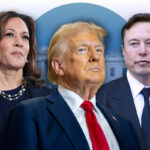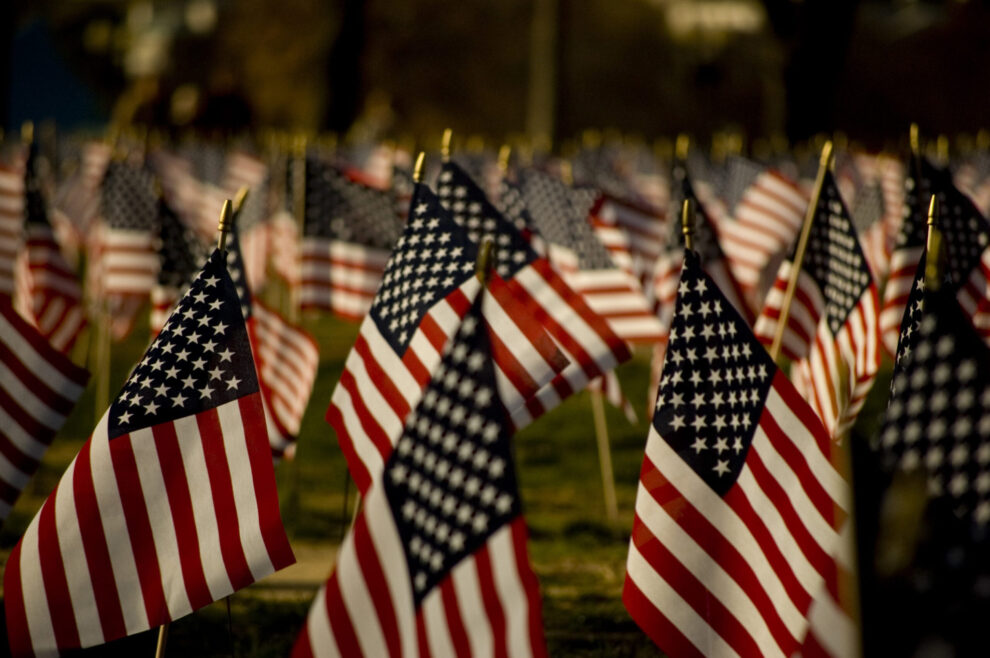Yankees or Red Sox, rock ‘n’ roll or disco, liberal or conservative – we have always taken sides.
It is human nature, and almost an inherent need, to align ourselves with others of the same virtues, values and beliefs. We enthusiastically root for one sports team over another, join fraternities and sororities in college, and register for our favorite political party. The social-emotional bond formed through like-mindedness can be deeply gratifying as it fuels our avidity and innate need for affirmation. But when bigger issues arise, we are also able to come together for a larger cause, unifying against the unknown, as so many people did in the face of COVID-19.
These days, however, some things can feel polarized in America, especially with what’s likely to be a dynamic presidential election looming in the not-so-distant future. The increased availability of media and content boom in recent years have allowed for the wide dissemination of information, education and perspectives. As a result, people have the option to see and hear only the perspectives they want, dismissing and ignoring those that do not align with their views.
Terms like “fake news” have popped up in our vernacular as a means of dismissing reports that run counter to what we think or perceive. And data backs up Americans’ preference for a take on the news that agrees with their own: WPP’s BAV, the company’s proprietary brand analytics tool and the world’s largest study of brands, indicates people in the U.S. are far less likely to trust a news brand that does not align with their personal perspective, and that this polarization of trust has grown considerably in the past 10 years.
Meanwhile, social media algorithms feed us more of the same type of content that we previously viewed and liked, further reinforcing our positions. Yet if we only listen to and believe what we want to hear and dismiss what we don’t, we inevitably nurture a one-sided perspective and, slowly but surely, we’ll start to lose sight of the bigger picture.
As Americans, surrounded by the microdynamics of our society and myriad cultural dichotomies, we’re constantly presented with the minute detail of topics discussed on our evening news channels and on the internet. From such a close-up view, it might feel like we sit on one side or another. But pulling back to a broader perspective, how do we and the rest of the world truly view America? Have we indeed become two Americas, or do we still stand for the “United” States of America?
To answer this question, my colleagues and I dove into the data from the 2023 Best Countries project – a collaboration between WPP, U.S. News & World Report and the Wharton School at the University of Pennsylvania – for insights on how the world sees America as a brand, meaning what characteristics and attributes they ascribe to it. Have Americans’ values and virtues in fact become less clear, not only to ourselves but to residents of other countries as well?
Surprisingly, we found that based on survey responses from around the world, brand USA remains singular, sitting among the strongest and most consistently rated country brands globally – nations such as Switzerland, Japan and Australia. The world recognizes the U.S. as a connected and powerful leader, with the country ranking in the top 10% for assessed perceptions regarding economic influence, political influence and international relations, among other areas. The highly unified perceptions of the U.S. are fairly unique, as most country brands in the Best Countries analysis lack the same level of global consistency in their ratings.
At the same time, while the United States has its internal politics and disagreements – making our differences seem vast to us – we are more unified than we realize when we pull back to a more global context. The Best Countries data reveals a strong similarity between Americans who lean liberal and those who lean conservative regarding their perceptions of the U.S. on a majority of the 73 attributes measured.
Furthermore, Americans’ values and personal opinions are more aligned than they are different from one another, indicating a hidden unity amid what at times can feel like divided discourse. While there are notable differences on issues such as income equality and racial equity, Americans across the political spectrum are largely on the same page regarding many other key topics, including the country’s military strength, job market conditions, legal framework and commitment to social justice.
The data also shows strong relationships and alignments among countries, suggesting that global and regional sides are constantly being taken, reflective of the dynamics of the current geopolitical landscape. For example, reactions to the Best Countries survey statement, “Social media has a positive effect on society” reveal stark regional trends, with the strongest agreement in several Asian countries – China, Vietnam and Indonesia – and much lower support in countries such as Sweden, Denmark, France, Finland and the U.S.
As the world continuously chooses sides on issues like these, unity can be found within the United States, which still wields strong influence that extends well beyond its borders. Rather than focusing solely on the differences between Americans, perhaps the better and more constructive way forward is to remind ourselves of the things we all agree on as a nation, and to celebrate the positive traits the world ascribes to us.
Source : US News
















